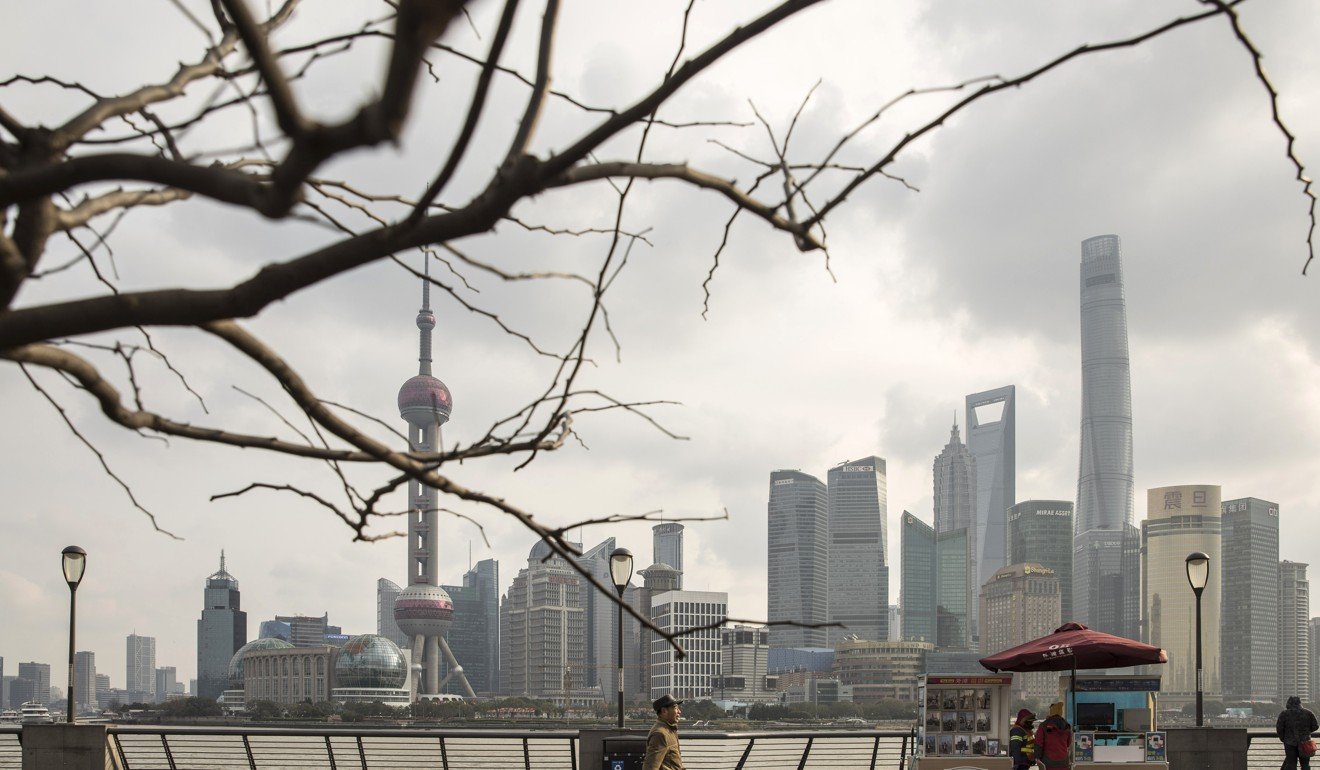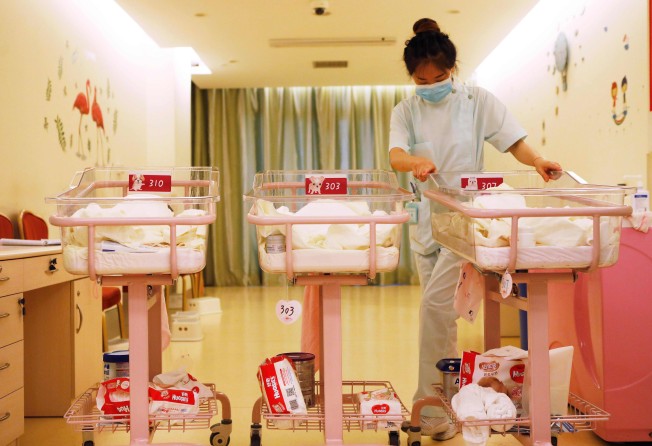
More Shanghai babies given mother’s surname as China’s old patriarchal traditions start to fade
- Official figures from city suggest almost 10 per cent of newborns took their mother’s name as women start to enjoy more independence and higher status

Almost one in 10 newborns in Shanghai last year were given their mother’s surname, marking a sharp departure from society’s patriarchal norms.
The Shanghai Population Management Office announced this week that among the 90,000 babies born to the city’s permanent residents in 2018, 91.2 per cent had their father’s surname and 8.8 per cent their mother’s. Some 2.5 per cent had both parents’ family names.
Yang Juhua, a professor of demographics from the Centre for Population and Development Studies of Renmin University of China in Beijing, said the trend was related to the new policy of allowing families to have two children.
“In many families in big cities, the first child now carries the father’s surname and the second one the mother’s,” Yang said. “This arrangement is considered fair to both families.”
China’s Marriage Law stipulates people can choose either their father or mother’s surname.

“It was my father’s desire to give my second child my surname and my husband’s family agreed,” said Tina Wu, whose four-year-old carries her surname.
The 43-year-old said her eldest, a 10-year-old boy, had the same surname as his father, Chen.
Wu said that before her second son was born, her father was worried that his family’s lineage would be lost but “thanks to the two-child policy, this problem has been solved”.
Huang Lin, a feminist researcher at Capital Normal University in Beijing, said she was “surprised” by the higher than expected figures, but said they reflected the higher status women now had in society.
“It’s perhaps because Shanghai was one of the earliest Chinese cities to undergo modernisation. Women pay more attention to economic independence here,” Huang said.
“In China’s feudal era, women did not have their own names, but were referred to by a combination of their husband and father’s surnames. That a modern women can give their child their surname is really a revolutionary change.”
A survey in 2017 by China Youth Daily, the Communist Youth League’s official newspaper, and Wenjuan.com, found that 54.7 per cent of the 2,032 people questioned thought it was acceptable for a child to carry its mother’s surname, while 23.2 per cent were totally opposed.
The figures from Shanghai triggered a debate on social media.
“Whether my child uses my surname or my wife’s is irrelevant,” a reader from Sichuan wrote on news portal 163.com. “A surname is just a symbol. Whatever he is surnamed does not affect our blood relationship.”
“The child is the offspring of both his mother and father. I think either choice is reasonable,” wrote one Weibo user.
But another post on the network read: “Following the father’s surname has been a tradition for thousands of years and we should respect the tradition.”
“There are very few countries in the world where people carry the mother’s surname,” said another. “Even Hillary Clinton uses her husband’s family name.”